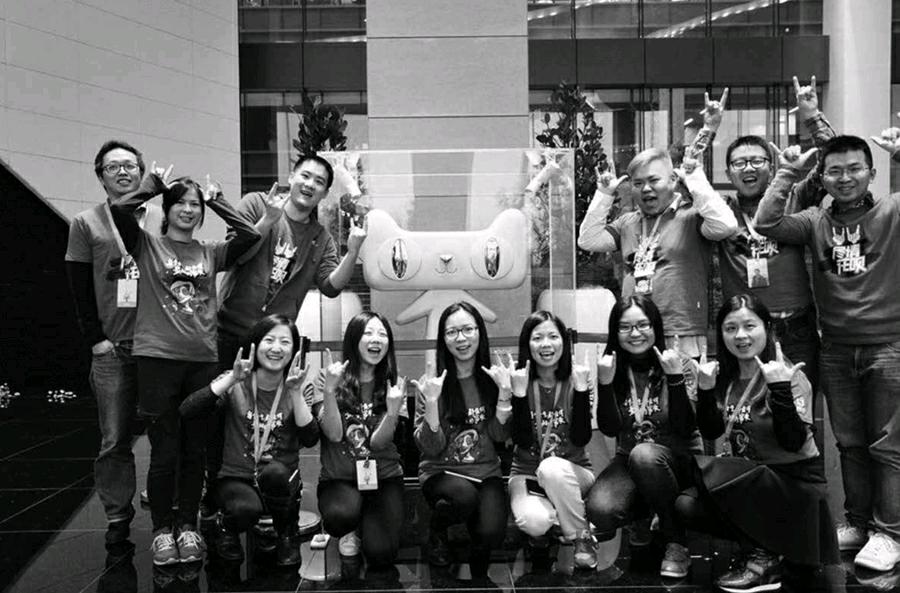China’s Singles Day Goes Global,Breaks Records
Bargain-hunters splurged a record 168.2 billion yuan ($25.3 billion)during this years Singles Day, the worlds largest daylong discount gala, as e-commerce giant Alibaba Group took the online shopping spree to physical stores and beyond borders, banking on Chinas technological prowess.
Spending surged 39.3 percent at 2017s sale - the ninth iteration of the event -as consumers worldwide scooped up discounted apparel, mobile phones, imported lobster and infant formula from 140,000 brands that dished out promotions during the annual jamboree.
The tech behemoth broke last years 120.7 billion-yuan high-water mark shortly after midday transactions, and gained fresh steam as overseas shoppers joined the fray from Saturday afternoon for good deals from China. Expanding at a faster-than-expected pace, that sheer number eclipsed the combined sales of Black Friday and Cyber Monday in the United States last year.
The countrys clout in mobile payments and intelligent logistics has bolstered the stellar growth, said Matthew Crabbe, Asia Pacific research director at consultancy Mintel. For instance, popular mobile wallet Alipay processed deals at a peak rate of 256,000 transactions per second in some 200 countries and regions, according to Alibaba, while robots and algorithms accelerated parcel distribution even in the most complex road networks at home and abroad. The tech giant also used virtual reality dressing rooms and interactive fashion shows to better coordinate and integrate online and offline commercial resources.
Sales on Alibabas platforms raced above 10 billion yuan ($1.53 billion) in just three minutes, smashing last years mark of about seven minutes as the ecommerce behemoth raised the curtain of its ninth annual shopping extravaganza called Singles Day on Saturday. Around 93 percent of deals placed in the first couple of minutes were conducted via mobile devices, the company said.
To attract customers who already regard online shopping as common place, Alibaba has promised to dish out promotions on more than 15 million products from 140,000 brands on its marketplaces, up from 100,000 brands in 2016. The company has also upped the ante in its social media efforts by providing more interactive content and entertainment, including a catwalk show offering a glimpse of products on offer as well as a star-stubbed countdown gala in Shanghai. Last year, some 120.7 billion yuan was spent on the groups various platforms from 100,000 brands. That was a staggering 2,000-fold increase from 2009 when the event debuted. Consultancy Frost & Sullivan has predicted that this years event will see gross merchandise volume reach 150 billion yuan, a rise of 24.3 percent yearon-year.endprint
Singles Day has spread from Alibaba to draw in other e-commerce operators and this year will spill over into brick-and-mortar stores, where customers can enjoy augmented realitypowered product trials and check items in physical shops even if they place the order online. It is also getting an international flavor with the group enticing over 60,000 international labels to offer discounts to satiate Chinese surging demand for high-quality imported goods.
Eight years after the first Singles Day promotion, the Chinese shopping festival has become a global retail event. Buyers and retailers are getting ready for this years shopping extravaganza which falls on Saturday. Chinese e-commerce giant Alibaba said over 15 million types of goods from 140,000 brands will be available through its Tmall shopping platform. The company said luxury brands, retail giants from the United States and Australia, and millions of Chinese retailers will join the promotion this year.
Stadium Goods, a New York Citybased marketplace that sells footwear and other apparel, said it began preparations for the promotion one month in advance. Its Singles Day sales target is $2 million, said John McPheters, founder of the company.
In 2016, Alibabas Singles Day sales totalled 120 billion yuan (about $18 billion). A third of the sales come from global brands and retailers, the company said. November 11 has been celebrated as Singles Day since the 1990s. The date was chosen because 11-11 resembles four “bare sticks,” the Chinese term for bachelor. Alibaba introduced the Singles Day shopping event in 2009 and it has grown to become known as the Chinese version of the USs Black Friday sales.
Chinese buyers have started to add their chosen goods to shopping carts in the countdown to midnight when promotions begin. Overseas buyers are also participating in the worlds biggest retail event.
According to figures from AliExpress, the companys outbound platform, it has 60 million active buyers in 220 countries and regions in 2017. On a daily basis, over 20 million people use AliExpress to make purchases online. In Russia alone, there are about 22 million online buyers, the company said.
Russian buyer Anastasia Igumnova bought her smart-phone and kitchenware through AliExpress. “It is quite convenient to use the website. I bought a nail clipper, and was surprised that I did not have to pay postage fees,” she said. “E-commerce platforms have become an important way for trade on a global scale. An increasing number of buyers, not only in China, but also around the world, are making purchases online,” said Shen Difan, general manager of AliExpress.endprint
Another Chinese e-commerce giant, JD.com, has also offered discounts on postage fees for global buyers. “On the Singles Day, overseas consumers will be able to have their products delivered to their homes without paying shipping costs,” said Yan Xiaobing, vice-manager of JD group. “Singles Day is adding more and more overseas businesses, and it has become a huge opportunity for goods, capital and culture to be exchanged around the world,” said Jin Xuejun, professor of economics at Zhejiang University. “Chinese companies have improved payment and logistics networks to make online buying cheaper and more convenient. Buying and selling on a global scale is a boon for the global retail market and the world economy,”he said.
Saturdays 24-hour online shopping binge is the day-to-day online shopping market in microcosm, and benefits manufacturers, traders and consumers far beyond Chinas borders. Nov 11, Chinas Singles Day, became an online shopping spree in 2009 when Alibabas Tmall began to make it so through extensive promotions. The worlds biggest online shopping spree is a barometer of consumer behavior.
Set in both “the worlds factory”and second largest economy, the event draws shoppers from around the world looking for bargains and multinational corporations seeking sales. “It is a worldwide social synergy event,” said Zhang Yong, chief executive officer of Alibaba. “The synergy means joint efforts by global businesses and driven by technology and big data. It is a Chinese phenomenon with world influence.”This year, sales hit 100 billion yuan($15 billion) by 9:04 am. Sales on Tmall broke the 10 billion yuan mark just three minutes after midnight. Last year, it took almost seven minutes. “Singles Day brings us many nice surprises each year, with the new commercial phenomenon and business forces. I think this year will be no exception,” said Zhang.
Alibaba has created Haitao to help people in China buy foreign products, and TMall Global as a marketplace for foreign businesses to sell directly to Chinese consumers. Japanese brands Onward Crosset and Laox, for example, have Singles Day promotions at their shops on Tmall Global. Stadium Goods, a New York City-based marketplace that sells footwear and other apparel, said it began preparations for the promotion one month in advance. Its Singles Day sales target is $2 million, said John McPheters, founder of the company. But its not just sellers, many foreigners are also buying, according to Cyol.com.endprint

According to data by AliExpress, Russia, Brazil, the United States, Spain, France, Ukraine, Israel, Belarus, Canada and the Netherlands have become the top 10 buyers in terms of purchasing power. Females and people from 25 to 34 years old are the main source of the 100 million foreign online shoppers, the data showed. “It is a Chinese phenomenon, but resonates across the world,”Zhang said. Alibabas net income rose 146 percent to more than 17.4 billion yuan year-on-year for the fiscal quarter ending September.
Revenue from international businesses reached 2.9 billion yuan, 115-percent growth year on year, thanks to strong growth in its Southeast Asian platform Lazada and China outbound platform AliExpress. “Singles Day is adding more and more overseas busi- nesses, and it has become a huge opportunity for goods, capital and culture to be exchanged around the world,” said Jin Xuejun, professor of economics at Zhejiang University.
In 2016, Alibabas Singles Day sales totalled 120 billion yuan thanks to its internationalization tendency, but the record was surpassed in just 13 hours this year. The Singles Day shopping is becoming bigger in scale given JD.com Inc., Kaola.com and other cross-border e-commerce platforms have came to share the big on-line shopping cake. It takes JD.com as long as 11 days to top 100 billion yuan of sales by Nov 11, in contrast with Alibabas nine hours.
These cross-border e-commerce platforms have made increased efforts to expand businesses abroad. Taking Alibaba as an example, its online payment app Alipay can now support 27 clearing currencies and serve users in over 200 countries. Cainiao Network, the logistics arm of Alibaba, has established 266 cross-border warehouses in 224 countries and regions. Despite convenience and jobs brought by booming ecommerce business worldwide, experts warned of nuisances and risks looming over the whole sector, such as junk information, credit default and internet fraud.endprint

